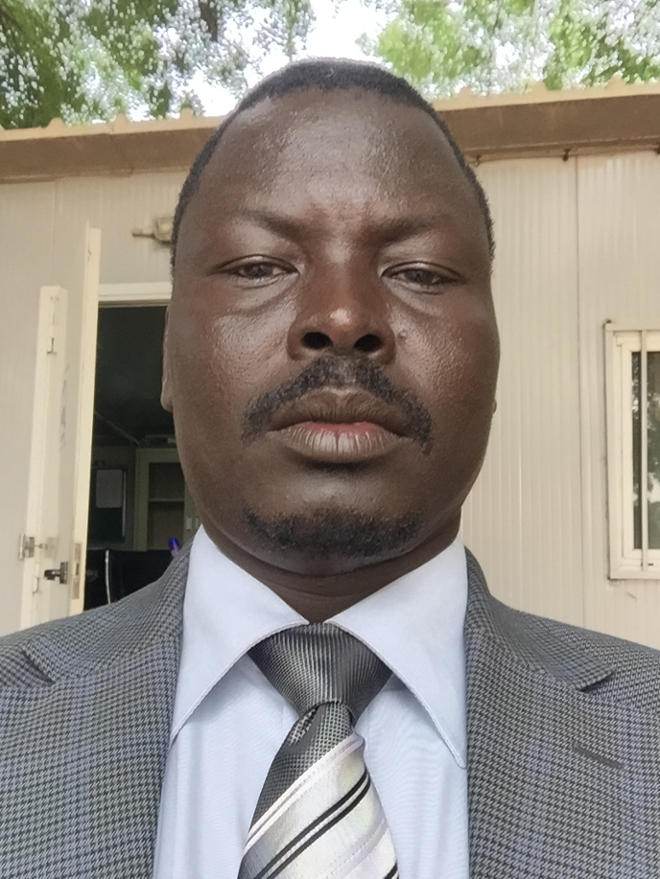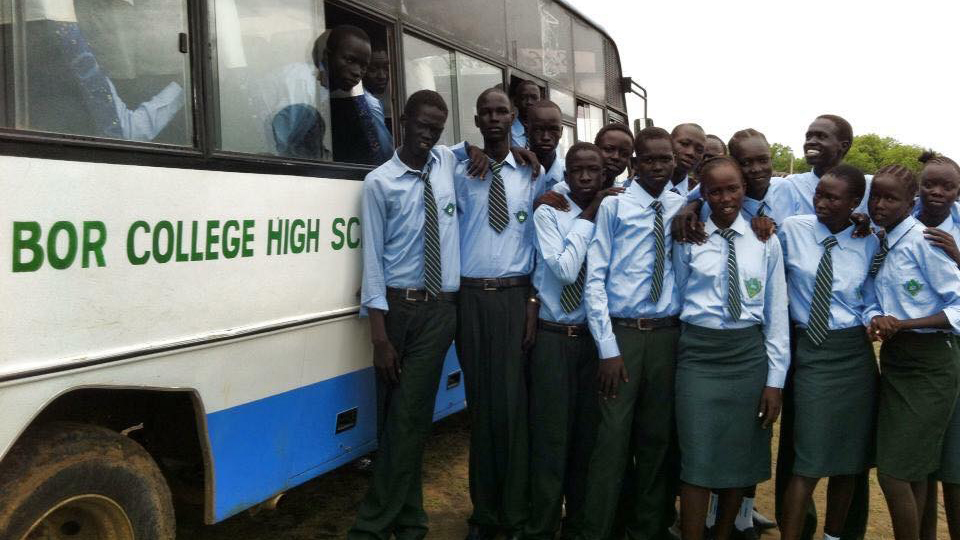
Two decades after Panther Alier, MA SID’07, fled his home during Sudan’s devastating civil war in 1987, he finally returned home to his village of Bor in South Sudan.
He traveled from refugee camp to refugee camp through Ethiopia and Kenya, separated from his aunt and siblings, before finally resettling in the United States in 2001. It was a struggle to acclimate to his new country—but eventually, he earned a bachelor’s degree from UMass-Boston and started to earn a comfortable living. He gained U.S. citizenship. No one could fault him for staying.
But that’s not what Alier wanted. He chose to pursue a master’s degree in sustainable international development at Heller so he could find a job that would take him back to Sudan.
“My goal was always to return and help communities back home,” he says. “I went back with the euphoria of going to make drastic changes.”
But it was a shock—and incredibly emotional—to return to his village and reunite with his siblings.
“Literally, in Bor, there was nothing there, other than people. I saw so many kids running around, not in school, including in my own family. The only way I could help was to establish something that would contribute: a school.”
It wasn’t easy. Sudan was in the midst of political upheaval, with South Sudan on the verge of establishing independence in 2011. Alier had a good job with Winrock International, working on a USAID-funded project to support local governance and service delivery, but he was embarking on a new career and had little money saved.
Despite these challenges he furthered his career at Winrock, then moved to Deloitte to consult for the South Sudanese government and the World Bank. In 2012 he was finally able to work with two friends to establish the Bor College High School.
Alier and the school have survived tumultuous times in South Sudan, which “descended into chaos barely a year after independence,” he says. After a new conflict erupted in South Sudan, Alier took a position with Voluntary Service Overseas in Malawi, temporarily shuttering the school during his absence. But he returned in 2015, reopened the school and today serves as country director for the Smile Again Africa Development Organization.
In a way, Alier has come full circle. While he was living in the refugee camps, “the only profession we saw was a teacher. So I thought when I went back to Sudan, I could become a teacher.” Now, he’s providing an education to more than 500 students. In February, he visited Heller during a business trip, seeking advice from Professor Larry Simon on how to make the school self-sufficient in the face of South Sudan’s ongoing crisis.
He hopes through education, this new generation will be able to avoid the ethnic and tribal conflicts that have plagued his people over the last century. More concretely, he says, “my hope is that these kids will be able to go off to college and come back to change their communities,” just like him.

